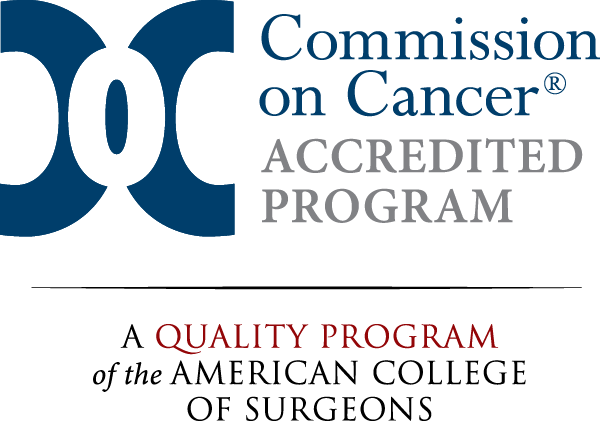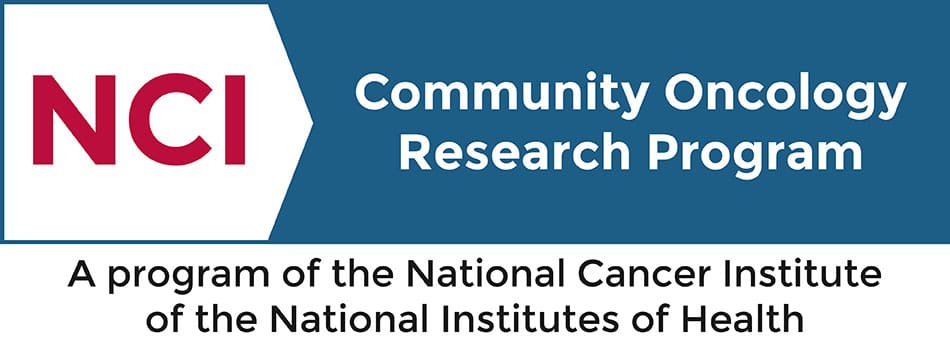It’s normal to feel overwhelmed and anxious when faced with the possibility of a colon cancer diagnosis. Being informed as well as managing the risk factors you can control can make all the difference in prevention and in detecting colon cancer early when it’s more likely to be treated.
Understanding the basic facts about colorectal cancer can help you better understand what lies ahead:
What is Colorectal Cancer?
- Colorectal cancer is also named colon cancer or rectal cancer, depending on where it originates
- Most colorectal cancers start as polyps — growths on the inner lining of the colon or rectum, which may or may not turn into cancer
- If a polyp forms into cancer, it can grow into the wall of the colon or rectum over time
- If it continues to grow, it can then spread to the other organs in the body
Causes and Risk Factors
Certain risk factors — things that affect your chances of getting the disease — have been shown to increase a person’s chance of developing colorectal cancer. Having a risk factor doesn’t mean you will get the disease, and some people who get the disease may not have any risk factors.
Some risk factors can be changed, others cannot. You can decrease your risk by modifying changeable risk factors.
Changeable risk factors include:
- Obesity: Overweight men and women, particularly those who have a larger waistline, have a higher risk of developing and dying from colorectal cancer.
- Diet: A diet high in red meat (beef, pork, lamb or liver) and processed meats (such as hot dogs or some luncheon meats) and low in fiber (fruit and vegetables) can increase your risk for colorectal cancer.
- Smoking: People who smoke are at a higher risk than non-smokers for developing colorectal cancer.
- Alcohol use: Moderate to heavy alcohol use can increase your risk of colorectal cancer. Limiting alcohol to no more than two drinks a day for men and 1 drink a day for women could have many health benefits, including lowering your risk of colon cancer.
Risk factors you cannot change:
- Age: Colorectal cancer increases with age and is most common (90% of cases) in those over 50. This being said, the incidence of colon cancer is increasing in the younger age groups. Patients aged 25 to 50 have seen a higher incidence of colon cancer over the past few decades.
- Personal history of colorectal polyps or colorectal cancer: If you have a history of adenomatous polyps, particularly if they are large or if any of them show dysplasia, a term used to describe abnormal cells in the lining of the colon or rectum, you are at an increased risk of developing new colorectal cancers; the younger you are at the time of your first diagnosis, the greater your risk.
- Inflammatory bowel disease (IBD): People who have had IBD for many years, especially if untreated, often develop dysplasia. These abnormal cells, though not cancerous, can change into cancer over time.
- Family history of colorectal cancer or adenomatous polyps: 95% of colorectal cancers are diagnosed in people with no family history, but having a family history of colorectal cancer or polyp formation can put you at an increased risk.
- Race/ethnicity: African Americans are more likely than Asian, Hispanic, or Caucasian individuals to develop colorectal cancer for reasons not fully understood. People with Ashkenazi Jewish ancestry have one of the highest rates of colorectal cancer of any ethnic group in the world.
- Diabetes: People with Type 2 (usually non-insulin dependent) diabetes share some of the same risk factors (such as being overweight) and have an increased risk of colorectal cancer.
- Rare inherited conditions: Those having an inherited syndrome such as Lynch syndrome or familial adenomatous polyposis (FAP) have a significantly increased risk of colorectal cancer.
What are the symptoms?
75% of patients with colorectal cancer don’t have symptoms at all, and when they develop any symptoms they may not be obvious at first. If there are symptoms, they may include:
- Change in bowel habits, such as diarrhea, constipation, or narrowing of the stool, that lasts more than a few days
- Feeling the urge to have a bowel movement but not feeling relief upon having one
- Blood in stool, which makes the stool look dark OR rectal bleeding with bright red blood
- Abdominal (belly) pain or cramping
- Unexplained weight loss
- Weakness and tiredness
If you have any of these symptoms, you should talk with your doctor.
Who should be screened?
A screening test looks for a disease when a person does NOT have symptoms of the disease.
Individuals who should consider a colonoscopy include:
- People of average risk who are older than 45
- Individuals at increased risk of colon cancer. You have a higher risk if:
- You have an immediate family member who was diagnosed with colorectal cancer or advanced polyps under the age of 6
- You have two immediate family members who have been diagnosed with colorectal cancer or advanced polyps
If you are at high risk, you should begin colonoscopy screening at age 40 or 10 years younger than the age at which your immediate family member was diagnosed, whichever is earlier.
Screening
There are two main types of colon cancer screening tests: stool-based tests, which check the stool (feces) for signs of cancer, and visual exams, which look at the structure of the colon and rectum for any abnormal areas. Talk to your doctor about which test is right for you.
Stool based tests
Stool based tests are less invasive and can often be done at home. These tests can be very good at diagnosing the presence of a cancer, but are not nearly as effective at diagnosing the presence of polyps. Abnormal test results should be followed up with a colonoscopy. For this type of test, you receive a test kit from your healthcare provider and follow the instructions for collecting a sample.
Visual tests
Visual tests are the only tests which can prevent colorectal cancer in addition to diagnosing it. These tests include the flexible sigmoidoscopy and the colonoscopy. These are done with a scope (a tube-like instrument with a light and a video camera), or with special imaging to check for polyps or cancer inside the rectum and lower third of the colon. These are typically done under anesthesia.
For the flexible sigmoidoscopy, your doctor inserts a short, thin, flexible tube into your rectum. This should be conducted every 5 years or every 10 years with a stool test every year. A colonoscopy is similar to the flexible sigmoidoscopy but a longer lighted tube allows your doctor to check for polyps or cancer inside the entire colon and rectum. During the test the doctor can find and remove most polyps and some cancers. Colonoscopy is also the standard follow-up test to follow up on any suspicious findings from the other screening tests. Colonoscopy should be done every 10 years for people who do not have an increased risk of colon cancer.
Capital Health has several physicians that perform colonoscopy screening services. These physicians accept various types of insurance and perform colonoscopies different days of the week, making it convenient to your schedule.
Treatments
If you’ve been diagnosed with colorectal cancer, your cancer care team will discuss your treatment options with you to help you weigh the benefits of each treatment option against the possible risks and side effects.
Local Treatments
These treatments are most likely to be used in earlier stages, ie, before the cancer spreads through the rest of the body.
- Surgery is often the main treatment for earlier-stage colon cancers. The type of surgery depends on the stage of cancer — how advanced it is, where it is, and the goal of the surgery. A polypectomy is done during the colonoscopy. It involves removing a cancerous polyp, usually by passing a wire loop through the colonoscope to cut the polyp off the wall of the colon with an electric current. A local excision is slightly more involved and uses tools to remove small cancers on the inside lining of the colon along with a small amount of healthy tissue on the wall of the colon. This can also be done during a colonoscopy.
- A colectomy is surgery to remove all or part of the colon. If only part of the colon is removed, it’s called a hemicolectomy, partial colectomy, or segmental resection. If all of the colon is removed, it’s called a total colectomy. A colectomy can be done in two ways: open, where surgery is done through a single long incision, and laparoscopic-assisted, where the surgery is done through many small incisions. Because of the smaller incisions, patients often recover faster than they would after an open colectomy.
- Radiation therapy is more often used for rectal cancer than for colon cancer. For some colon and rectal cancers the use of chemotherapy and radiation together is used and called chemoradiation. For colon cancer, radiation may be used before, after, or during surgery, although this is not common.
- Ablation refers to treatments that destroy small (less than 4 cm across) tumors without removing them with the use of radiofrequency, microwave, ethanol (alcohol), or cryosurgery (freezing). This is typically used to treat small tumors that have spread away from the primary site of the cancer (the colon or rectum). Embolization involves injecting substances into the blood vessels to block or reduce the flow to cancer cells in the liver and can be used for tumors that are too big to be treated with ablation.
Drug Therapy
Chemotherapy is the use of drugs to kill cancer cells, and is often used as part of the treatment for colorectal cancer. This is typically given in 2 to 4 week-long cycles, with each treatment followed by a rest period. More targeted drugs have recently been developed as researchers continue to gain a greater understanding about the gene and protein changes in cells that cause colon cancer. These can be used either along with chemotherapy or by themselves if chemotherapy is no longer working.
Based on your age, family history, health history and lifestyle factors, please discuss with your healthcare provider or contact our patient navigator at the Capital Health Cancer Center for a comprehensive consultation.
The Capital Health Cancer Center GI Clinical Performance Group (CPG) is a multi-disciplinary, physician-led group that drives transformational change in the clinical and patient-experience processes for patients with gastrointestinal (GI) cancer. The CPG evaluates, implements, and approves all GI cancer-related activities at the Capital Health Cancer Center and consists of physicians in various specialties, all with a focus on GI cancer. The team meets monthly to discuss opportunities for improving care for patients, families, and/or caregivers, and engages in consensus-driven dialogue that elevates the quality of care we provide.
Call 609-303-4444 for more information or to schedule an appointment



